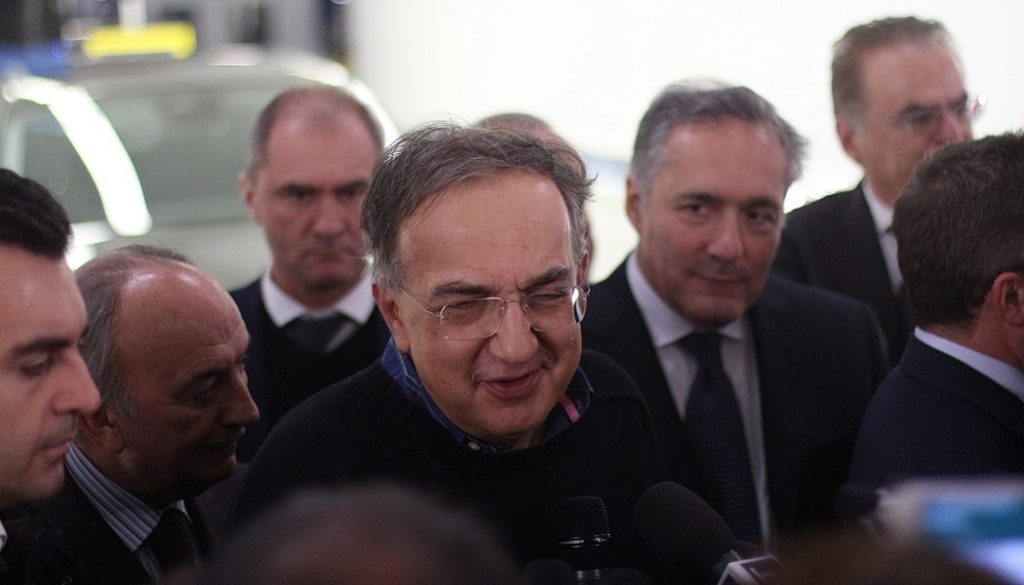

Sergio Marchionne, CEO of FCA, has announced his company is no longer interested in a Fiat Chrysler merger. Yes, that’s right, instead FCA is going to focus on things like making better vehicles, reducing operating costs, and things normal automakers spend their time doing.
That might not sound revolutionary, but you must know the torrid history of the unattainable Fiat Chrysler merger. Marchionne has spent considerable time trying to kindle some merger excitement. The guy might as well have admitted that FCA isn’t viable on its own, because that’s basically what he’s been doing.
Marchionne has made it pretty well-known FCA is done making small cars. The company threw in the towel on the Dodge dart and Chrysler 200 in 2016.
Instead of just announcing both vehicles wouldn’t be returning, he ridiculed the financial viability of the two automobiles.
“I can tell you right now that both the Chrysler 200 and the Dodge Dart, as great products as they were, were the least financially rewarding enterprises that we’ve carried out inside FCA in the last eight years,” Marchionne said at a press conference in early 2016. “I don’t know one investment that was as bad as these two were.”
Later in the month, however, the fiery CEO proceeded to publicly embarrass his employees. He called the designers for the Chrysler 200 “idiots” for making the rear door opening not wide enough.
While it’s true this makes getting in and out of the car without hitting your head difficult, the reckless behavior of the CEO shows how careless he is.
The sad part about this announcement is that Chrysler, one of the titular brands for FCA, will be down to just two vehicles: the Pacifica and the 300. The latter of the two is in desperate need of an overhaul. Dodge, at least, has a bevy of muscle cars and crossovers to lean on to provide positive media attention, like the ballyhooed Dodge Demon.
Another example of Marchionne’s leadership skills came out a few years ago when the Fiat 500e was launched. Sure, it was a compliance car. Automakers will often produce such things, give them minimal marketing support, and that’s about it.
Marchionne took things to a new level, actually begging potential customers not buy it. His reasoning: FCA was losing money with each one. He demonstrated that the company was on shaky financial footing, and that he didn’t feel any public goodwill generated by making an all-electric car was worthwhile.
Related Search Topics (Ads)
In fact, Marchionne has routinely decried electrification as silly, which is why FCA has been late to the plug-in party.
Marchionne has argued that automakers waste too much capital. It’s expensive to develop vehicle platforms, engines and all the other components.
Car companies create similar technologies, with many of them not working together. He thinks more of them should pool resources. Plenty of automotive CEOs have wholeheartedly rejected Marchionne’s ideas. After all, pooling resources too much results in brands being watered down.
Back in 2015, Marchionne blabbed to the media that a merger with GM was upcoming. Apparently, he didn’t mean it was in the works, because GM CEO Mary Barra quickly denounced such a plan.
She asserted GM can make it financially on its own, unlike FCA. Everything we’ve seen since then indicates she’s absolutely correct.
Would Marchionne have had a shot at such a deal if he had thrown it out there in private first? Not likely, but floating it in the media couldn’t have helped. It also led to a super embarrassing rejection everyone saw in full view.
In all honesty, GM doesn’t need a Fiat Chrysler merger. The automaker has a full, fleshed-out product lineup. Sure, there are a few gaps, but Cadillac and other brands are working to fill those in. Meanwhile, the FCA product lineup looks like Swiss cheese.
The most recent, and one of the most embarrassing, merger advances Marchionne made was toward Volkswagen.
Back in March, GM announced it was selling Opel and Vauxhall to Peugeot, VW’s biggest rival. Marchionne concluded, to the media, that this meant Volkswagen top brass would approach him in the near future about a partnership.
He had a feeling, and it was rejected, again. Volkswagen never called, and different executives at the German automaker essentially told the media they were just as shocked as everyone else by the news. The deal was dead before it ever started, again in full light of public scrutiny.
One of the reasons for such a merger was that the two companies would complement each other. FCA is strong on trucks and SUVs, while VW is stronger on cars.
While on the surface, a Fiat Chrysler merger with Volkswagen would have helped the two companies fill in gaps they each have, it was a bad idea. The brand ideals, business operations and cultures of the two companies couldn’t be further apart.
Not to mention, government regulators from the U.S. and Europe probably would’ve torpedoed such a deal in two seconds
You could say Marchionne and FCA have turned over a new leaf. At least, I hope they have.
Recently, at an investors’ meeting in Amsterdam, Marchionne said nobody is focusing on “unrealistic dreams about consolidation.” He cited the company’s progress toward eliminating debt as one reason.
Marchionne is reaching the end of his tenure at FCA. When he turns over the reins in 2019, don’t expect some huge revolution.
The CEO says he’s pushing for someone from inside the company. No doubt, he’ll try to pick an underling who shares his ideals for FCA’s future.
The question is whether this person will be successful in their efforts, and if the new CEO will actually stay the course.
Related Search Topics (Ads)